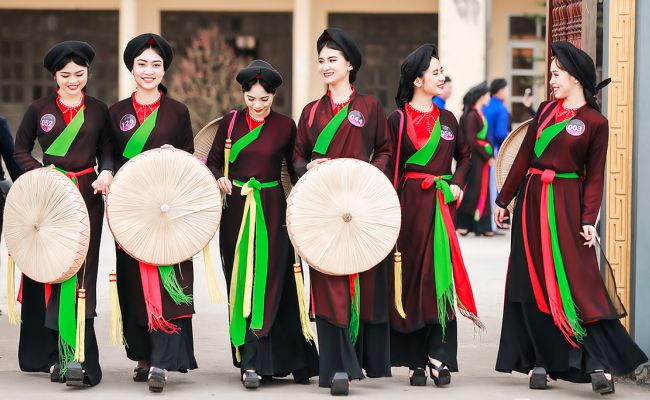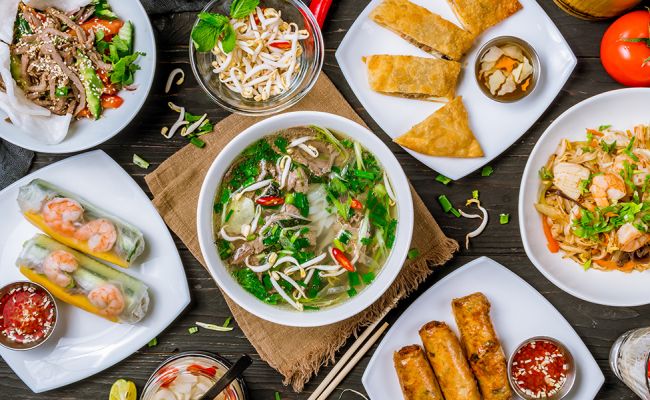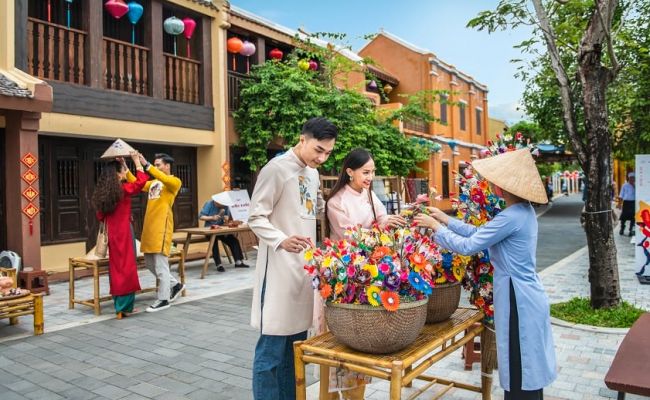Vietnam’s culture is a fusion of Chinese, Cambodian, and French influences. Despite its location in southeast Asia, Vietnam was once under Chinese influence, and its culture is quite similar to China’s. As a result, it is widely considered a melting pot for migrants from China, Japan, Taiwan, and Korea. The Vietnamese rulers subsequently moved on to absorb other aspects of the Khmer system, adopting components of Cambodian culture as well. The adoption of the Latin alphabet, the development of Catholicism, and the abundance of bread and pastries in Vietnamese cuisine all reflect the French colonial impact.
People Of Vietnam
The Vietnamese people, also known as the Viet people or the Viets, are a Southeast Asian ethnic group indigenous to modern-day Northern Vietnam and Southern China who speak Vietnamese, the most widely spoken Austroasiatic language.
According to the 2019 census, the Kinh people (ngời Kinh) make up over 85.32% of the Vietnamese population. They are distinguished from other minority groups in the country, including the Hmong, Cham, and Mường. Vietnam has four primary groups of Vietic speakers: Vietnamese, Mường, Thổ, and Chứt. They have ties to the Gin, a small ethnic group in China.
Traditional clothing in Vietnam
Vietnam’s traditional clothing style has evolved, under the control of several dynasties. However, the Ao Dai has withstood the test of time. Once worn by both men and women, the ao dai is now primarily associated with women. In recent years, Western outfits have dominated Vietnam’s clothing style, with the Ao Dai now reserved for special occasions or as a school or job uniform. The Non-La, a conical hat that has become synonymous with Vietnamese culture, is another example of traditional Vietnamese attire.
When visiting Vietnam, make sure to purchase the traditional Ao Dai and Non-La! The Ao Dai starts at VND 500,000, but the Non-La is only VND 25,000!

Languages in Vietnam
Chinese culture has heavily influenced Vietnamese, which is the main language. There are also French (due to the colonial background), Russian, and English influences (due to the respective belligerent armies during the Vietnam War). The numerous ethnic groups here speak languages other than Vietnamese, including Tay, Khmer, Muong, and Cham. They also understand foreign languages like Chinese and French.
Many people in Vietnam’s cities speak English fluently; therefore, tourists may not encounter a significant language barrier when traveling. If you intend to visit Vietnam’s rural areas, you may encounter difficulties.
Religion in Vietnam
Vietnam’s population generally practices three major religions: Taoism, Buddhism, and Confucianism. The people also practice ancestor worship. Most homes and offices have ancestral altars. Vietnam contains several Buddhist and Confucianist temples as evidence of this tradition, including the Thein Mu Pagoda, Perfume Pagoda, and Bai Dinh Pagoda. However, the Cao Dai Temple is unique in its own right. It respects all religions and encourages members of all faiths to participate actively in its ceremonies.
The influence of French colonialism has also led to an increase in the number of people who practice Catholicism. The Notre-Dame Basilica in Ho Chi Minh City, which was erected with bricks imported from France, demonstrates the invaders’ efforts to spread Christianity in Vietnam.
Hindu traders are believed to have founded the Mariamman Temple, which is popular among the minority Hindu Cham community in Vietnam.
Vietnamese cuisine
Vietnamese food, like its art forms, is extremely meaningful. The preparation of the food not only appeals to the body’s five senses but also provides five major nutrients and five fundamental tastes. The cuisine extensively uses fresh vegetables, herbs, and meats. Their cuisine also reflects the French influence. Most recipes are noodle- or broth-based and colorful, making them visually appealing. Since rice is more common than wheat, the diet also contains very little oil and dairy and is primarily gluten-free.
Must-try foods include Pho, Goi Cuon, Com Tam, and the well-known Banh Mi!

Festivals and holidays in Vietnam
Tet (Lunar New Year) and Tet Trung Thu (Lantern Festival) are two of the most well-known Vietnamese celebrations. The best way to celebrate Lunar New Year is in Hanoi, where there are several parties and fireworks displays. Tet Trung Thu is a bright harvest festival in which people gather to burn lanterns. On this day, people also perform the lion dance. Other Vietnamese holidays include Reunification Day and Independence Day, which feature parades and other events.
If you are visiting Vietnam on any of these holidays, make sure to participate in the celebrations because these are memories that will last a lifetime!
Vietnamese Music
Tet (Lunar New Year) and Tet Trung Thu (Lantern Festival) are two of the most well-known Vietnamese celebrations. The best way to celebrate Lunar New Year is in Hanoi, where there are several parties and fireworks displays. Tet Trung Thu is a bright harvest festival in which people gather to burn lanterns. On this day, people also perform the lion dance. Other Vietnamese holidays include Reunification Day and Independence Day, which feature parades and other events. If you are visiting Vietnam on any of these holidays, make sure to participate in the celebrations because these are memories that will last a lifetime!
